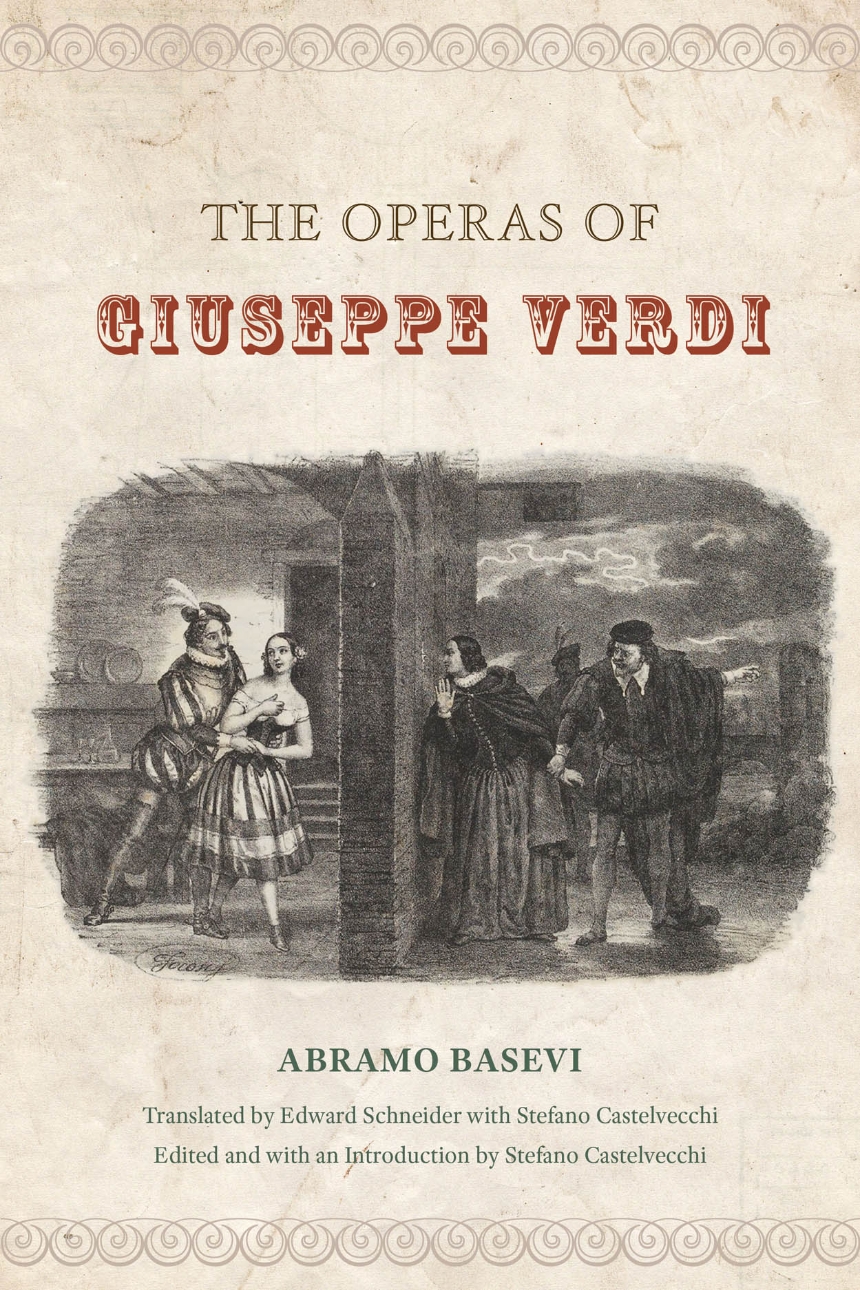The Operas of Giuseppe Verdi
Abramo Basevi published his study of Verdi’s operas in Florence in 1859, in the middle of the composer’s career. The first thorough, systematic examination of Verdi’s operas, it covered the twenty works produced between 1842 and 1857—from Nabucco and Macbeth to Il trovatore, La traviata, and Aroldo. But while Basevi’s work is still widely cited and discussed—and nowhere more so than in the English-speaking world—no translation of the entire volume has previously been available. The Operas of Giuseppe Verdi fills this gap, at the same time providing an invaluable critical apparatus and commentary on Basevi’s work.
As a contemporary of Verdi and a trained musician, erudite scholar, and critic conversant with current and past operatic repertories, Basevi presented pointed discussion of the operas and their historical context, offering today’s readers a unique window into many aspects of operatic culture, and culture in general, in Verdi’s Italy. He wrote with precision on formal aspects, use of melody and orchestration, and other compositional features, which made his study an acknowledged model for the growing field of music criticism. Carefully annotated and with an engaging introduction and detailed glossary by editor Stefano Castelvecchi, this translation illuminates Basevi’s musical and historical references as well as aspects of his language that remain difficult to grasp even for Italian readers.
Making Basevi’s important contribution to our understanding of Verdi and his operas available to a broad audience for the first time, The Operas of Giuseppe Verdi will delight scholars and opera enthusiasts alike.
Reviews
Table of Contents
Editor’s Introduction
Glossary
Editorial Note
Bibliographic Abbreviations
Acknowledgments
Preface
Glossary
Editorial Note
Bibliographic Abbreviations
Acknowledgments
Preface
1. Nabucodonosor
2. I Lombardi alla prima crociata
3. Ernani
4. I due Foscari
5. Giovanna d’Arco
6. Alzira
7. Attila
8. Macbeth
9. I masnadieri
10. Jérusalem
11. Il corsaro
12. La battaglia di Legnano
13. Luisa Miller
14. Stiffelio
15. Rigoletto
16. Il trovatore
17. La traviata
18. Giovanna de Guzman [Les vêpres siciliennes]
19. Simon Boccanegra
20. Aroldo
2. I Lombardi alla prima crociata
3. Ernani
4. I due Foscari
5. Giovanna d’Arco
6. Alzira
7. Attila
8. Macbeth
9. I masnadieri
10. Jérusalem
11. Il corsaro
12. La battaglia di Legnano
13. Luisa Miller
14. Stiffelio
15. Rigoletto
16. Il trovatore
17. La traviata
18. Giovanna de Guzman [Les vêpres siciliennes]
19. Simon Boccanegra
20. Aroldo
Conclusion
General Index
General Index
